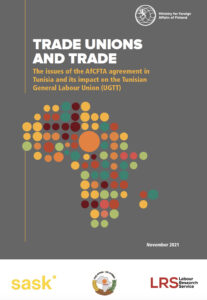
Analysis of the effects of the free trade area of the African continent (AfCFTA) on living and working conditions in Chad
The impact of the AfCFTA could vary across Chad’s economic sectors, resulting in a sectoral reallocation of labour.

The impact of the AfCFTA could vary across Chad’s economic sectors, resulting in a sectoral reallocation of labour.
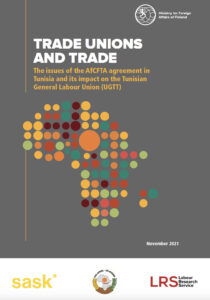
The report stresses that the trade union movement is a potential guarantor of a balanced implementation of the AfCFTA agreement and advocates for embedding South-South solidarity levers as an important measure in this regard.
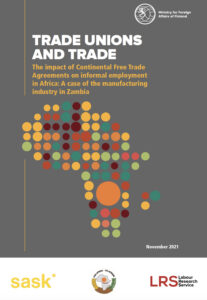
This study acknowledges the importance of the informal economy in Africa’s context and puts forward structural recommendations for making the informal economy more competitive.
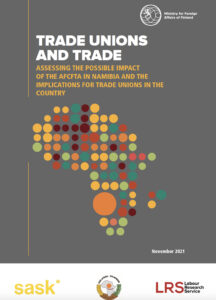
A key highlight of this report is the importance of the existing regional trade blocs when thinking about and engaging with the African Continental Free Trade Area (AfCFTA) agreement.
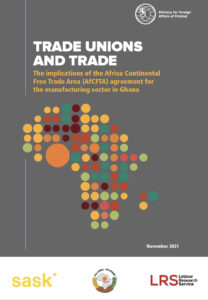
This study focuses on the pros and cons of the AfCFTA on Ghana’s manufacturing sector and recommends some key actions to ensure businesses and workers reap benefits from the agreement.
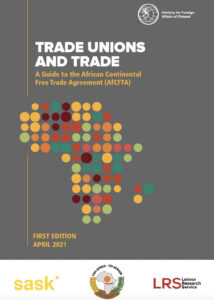
The African Continental Free Trade Area (AfCFTA) came into effect on 1 January 2021. 54 of the 55 African Union members have signed the AfCFTA
ITUC-Africa statement on the AfCFTA and sustainable development
Five trade union demands for the AfCFTA
ITUC-Africa statement on the Informal economy and the AfCFTA
Tunis Declaration 2022 | Trade Unions call for the inclusion of labour provisions in the AfCFTA
South African Multinational Companies in Africa Database